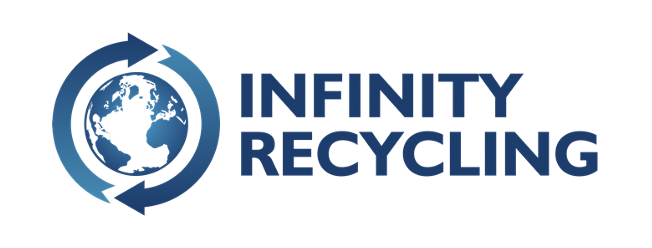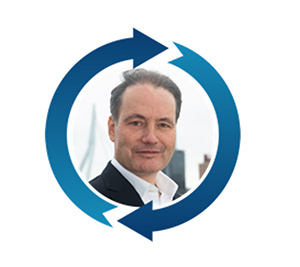
Infinity Recycling invests in, and supports, companies that try to create value from plastic waste.
We discussed ESG with Jeroen Kelder, Managing Director at Infinity Recycling.
Jeroen profoundly understands how the circular economy drives value to investors, and he brings a wealth of experience in structuring complex transactions designed to achieve tangible impact.

To answer that question, I first want to distinguish between ESG and Impact. ESG (Environmental, Social, and Governance) is, in our experience, used more as a risk mitigating tool. In contrast, impact has more meaning and is what matters to us.
When we talk about environmental impact, we strongly believe in creating a positive impact and delivering a financial return simultaneously. They are fewer and fewer different sides to the investment coin. We are convinced that transitioning to a more stable economy will also generate a tremendous economic impact and financial returns. Even more so, those returns are a prerequisite to keep the transition moving forward.
We expect that ESG will still be the hygiene factor it is today. It must be an integral part of your considerations as a fund or business. Not meeting ESG standards will increasingly lead to a discount (i.e., a brown discount).
By contrast, impact will deliver a (green) premium and thus catalyzes higher returns.
Creating a positive impact will get a similar status to ESG. In the future, it will be non-negotiable that there is a positive impact; otherwise, no investments will be made. In a sense, the impact will also become a ‘sine qua non’ for investment decisions. In other words, ESG and impact as decision drivers could soon render themselves obsolete.
There are three ways in which we see a shift towards durable investing happening.
First, the rules and regulations. Especially in the EU with the Sustainable Finance Disclosure Regulation, the distinction between sustainable and non-sustainable investments becomes more apparent and critical. When you claim you are sustainable, you must justify those claims by showing proof. This is where our Circular Plastics Fund, classified as an Article 9 fund, truly differentiates itself given the integral role impact plays in all our decision making. The need for proof will also trickle up to the institutional investors and investment managers who need to validate their investment decisions.
Secondly, we notice an increasing interest in dark green impact investments. We are currently lining up large investors for our third close, and we see that large investors are more interested in us as an Article 9 durable plastic recycling fund.
They are looking for green investments that are justifiable to their stakeholders.
Lastly, we also see a shift where investors are more actively involved in holding their portfolio companies accountable to ESG policies and impact goals. That makes sense because, in general, that will also increase the value of those assets. For example, Infinity Recycling actively partners with its portfolio companies to help them improve their ESG standards and make a measurable impact.
These three trends show that impact investing can be a multiplier in the value chain and create incremental value for both sides without there being a trade-off.
At the moment, many parties portray themselves as greener than they are for marketing purposes. You can still get away with an unsubstantiated claim that you are ‘green’ without real consequences. That unbridled greenwashing is problematic.
Governing bodies and other regulators need to be stricter and set rules. However, there also needs to be consequences when these rules are disregarded.
The biggest challenge in the impact investment world is the lack of risk capital. The incumbents of today's economy will not enter because they are hesitant and will not drive change but rather step in at later stages of development.
There is a need for parties and capital that act as catalysts to disrupt the current economy into the new economy. This can be a role for private investors who believe in that new direction and dare invest capital in impact propositions.
However, there is still a knowledge gap where a specialized investment manager like Infinity Recycling can play a crucial role.
Our fund invests in solutions that help convert end-of-life plastic waste into tradeable commodities, enabling a circular economy of plastics.
We invest in and support companies that try to create value from plastic waste. Of the plastic waste in North-Western Europe alone, 86% is mismanaged and loses all significance. We invest in companies that see possibilities in creating value for that plastic waste. Companies that, in essence, use recycling to make plastic a non-fossil product instead of a fossil product.
For example, plastic food packaging. These are efficient and great for their purpose as a container. However, we need to ensure that the plastic gets recycled in a way that is value retaining instead of value diminishing or even value destruction.
Among the impact goals we have set for our organization, we pursue the retention of the valuable plastic molecule in play by investing in technologies that convert waste to commodities. This positively impacts the environment and society by minimizing
(i) the depletion of natural resources – shift from virgin (fossil) feedstock to waste plastic feedstock; EU recently issued target of 50% recycled content by 2040),
(ii) the environmental impact in terms of pollution by retaining the plastic in the value chain (recycling; currently, over 90% of plastic waste is incinerated, landfilled or mismanaged) and
(iii) the emission of GHG (60-70% reduction in emissions related to the plastics lifecycle)
For ourselves in two-fold. We are zero-neutral because we offset a large part of our carbon. However, we aim to become net-zero shortly with our team of 8 colleagues.
Apart from that, there is also our portfolio. Our carried interest of 25% is withheld and only paid out when the portfolio meets certain conditions. These are targets based on the amounts of waste that we re-value. If we don’t meet these targets, that carried interest amount will be donated to a non-profit cause in the environmental area.
We also hold our portfolio companies accountable for ESG. Before we invest, we agree on how the ESG values will be managed and who is responsible for that in the company. We keep working and checking that in an ongoing periodical way.
We start with an ESG questionnaire for our portfolio companies. The resulting score sets a baseline and offers us an overview of development opportunities for that company. We use that as input for an ESG agenda that will become part of the shareholder agreement and form the basis of .an active engagement with our portfolio companies to help them deliver impact.
Outside our PAC advisory board, we also have an ESG advisory committee that holds us accountable when we have doubts about an investment.
We look for partners that share our ESG and impact values. This means a strong alignment between our respective strategies needs to be established. Sometimes this is very explicit, but sometimes, we do this in a ‘soft diligence’ manner. But it is clear that if we hold ourselves and our portfolio companies accountable for environmental impact, strong governance, and social equality, we expect nothing less from our business partners.
We have built strong traction since our first close. The fund made its fourth investment earlier this quarter and will complete its second close later this month. We are working towards our third close, anticipated for Q2 of ’23. We see interest from a healthy mix of corporate investors, family offices, fund of funds, and institutional investors.
If you want to learn more about the opportunities we are capturing, we are happy to connect with you and visit https://infinity-recycling.com for more information.



